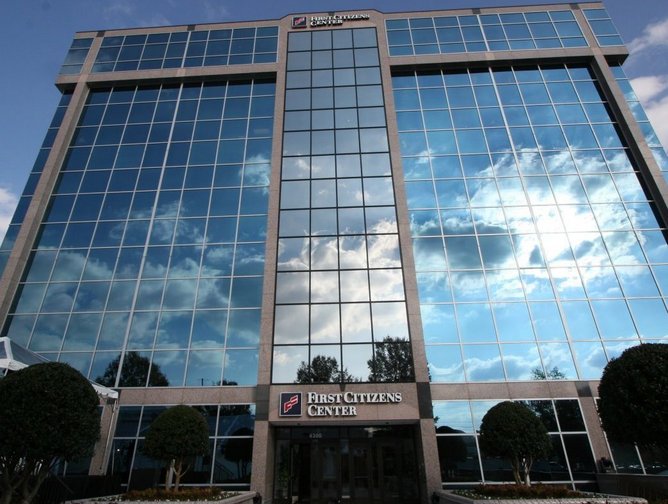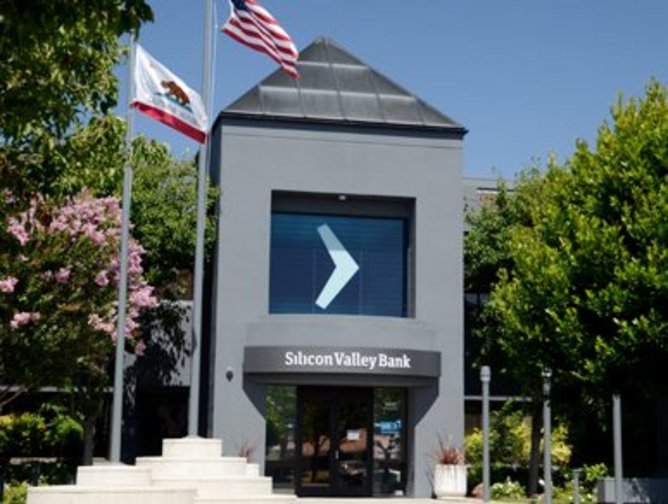First Citizens buys failed tech lender Silicon Valley Bank

The collapse of Silicon Valley Bank earlier this month triggered falls in bank shares across the world and sparked fears of a global financial crisis.
Now, the defunct lender – and crucial backer of tech start-ups – has been purchased by First Citizens Bancshares, which has taken on all US$119 billion in deposits and loans.
SVB's collapse is estimated to have cost around US$20bn in deposit payouts, according to the Federal Deposit Insurance Corporation (FDIC), the US regulator.
The FDIC added that 17 former branches of SVB would reopen as First Citizens on Monday (27 March).
Customers have been advised to continue using their current branch until receiving notice that systems have been moved across to allow banking at other branch locations.
What are the terms of the SVB deal?
In a statement released on Sunday, the FDIC said SVB had collapsed with a total of about US$167bn in assets and $119bn in deposits.

First Citizens, based in North Carolina, has bought approximately US$72bn of SVB’s assets at a discounted price of US$16.5bn. Around US$90bn worth of securities and other assets will remain with FDIC.
Moreover, the FDIC has received equity appreciation rights in the First Citizens common stock with a potential value of up to $US500m.
Following the closure of Silicon Valley Bank, the FDIC set up Silicon Valley Bridge Bank, National Association, allowing the corporation time to “stabilise the institution and market the franchise.”
This saw all deposits – both insured and uninsured – as well as all assets and all qualified financial contracts of SVB, transferred to the bridge bank.
Meanwhile, the UK arm of SVB was bought by HSBC for just £1.
Why did Silicon Valley Bank collapse?
Shares in SVB initially plunged after the banking heavyweight announced it had sold almost 80% of its AFS portfolio for US$21 billion – taking a US$1.8bn hit.
In context, the company’s net income throughout the entirety of 2021 was US$1.5bn.
Then came a further revelation that SVB was selling US$2.25bn worth of shares to help shore up its financial situation.
By this point alarm bells were ringing for investors, largely due to the bank’s commitment to serving a whole host of technology start-ups.
SVB has become a crucial lender to these fledgling firms, but a bleak year for the sector has massively dented confidence.
Start-ups were among those to endure a dismal 2022, as investment from venture capital firms nosedived thanks to widespread fears of a global recession.
Therefore, in the minds of investors, doubts were setting in over whether SVB’s capital-raising effort would be enough to secure its future.
Ultimately, many decided to pull their money and stock plummeted. Regulators swept in to shut down SVB, taking control of customer deposits in the process.

What was the impact of SVB’s collapse?
SVB’s collapse was quickly followed by the demise of Signature Bank, which was strongly linked to the real estate and legal sectors.
The pair were the biggest US banks to fail since the financial crash of 2008.
Panic began spreading in the US and across the globe, as depositors became increasingly concerned over the financial stability of their own lenders.
After cracks began to show at Credit Suisse, one of the biggest banks in the world, domestic rival UBS moved to complete a rapid, cut-price US$3.25bn takeover backed by the Swiss government.
Despite the deal, market turbulence has remained, especially given the glowing Swiss financial reputation. Stock markets in the UK and Asia both fell last week, before mounting a recovery.
While the banking system is some way from the widespread collapse seen in 2008, depositors are nervous and the situation remains precarious.






